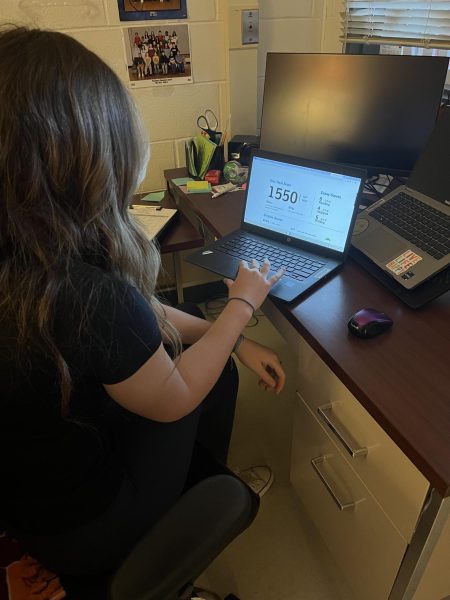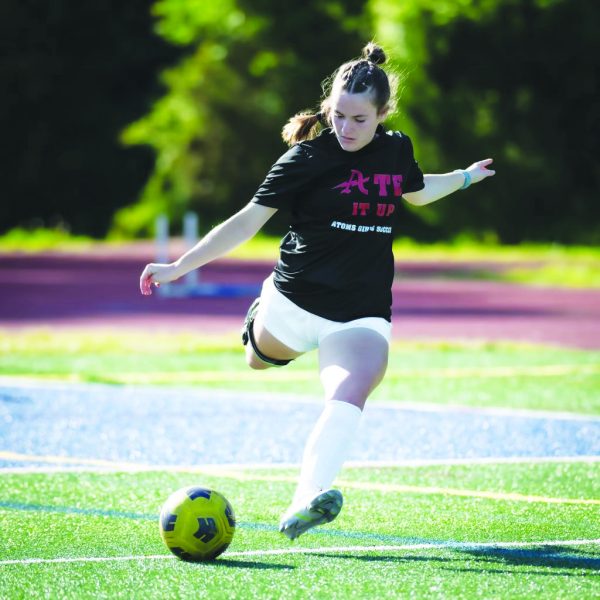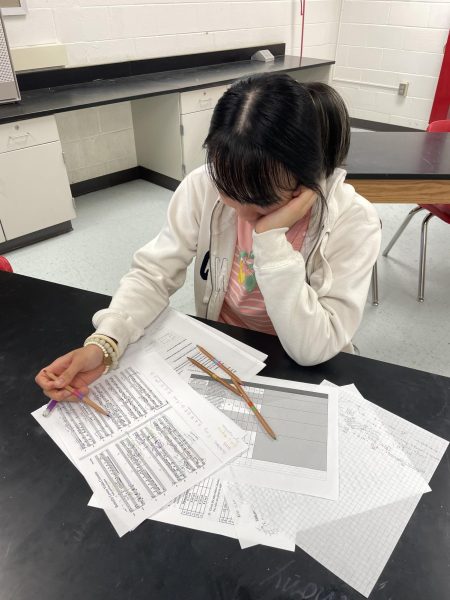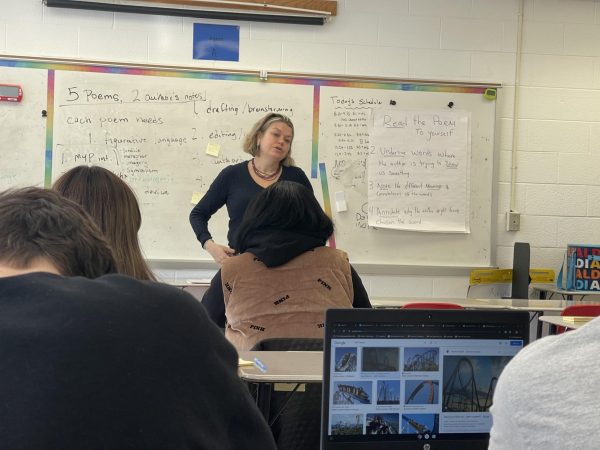Effect of breaks on student participation
Holiday breaks and extended weekends give ample time for many students to relax, but being out of school for too long can put pressure on some. While some teachers want to rest as much as the students, others assign work to keep students prepared.
“Over break, you forget everything,” senior Michael Lam said. “For some it’s an overload of work, or time to catch up.”
Students who are struggling in some classes find break assignments to be stressful, and for students who do well, extra work can impose on their time away from school.
“There’s definitely a lot that I do,” sophomore Isabella Jimenez said. “I play a lot of soccer, so over the holidays I travel by plane, and I still have to get work done.”
Teachers vary the types of work they assign, if they assign any work at all. Long-term projects and review packets let students pace work over the break.
“Usually for IB and Honors classes I get a lot of projects and review packets,” Lam said.
“We get a maximum of three big assignments,” junior Betty Degefu said.
“They’re mostly review packets and essays.”
With every student taking their own different classes, the work that students have to deal with over break can vary in volume. Students that have too much work or are busy during the break need to plan time in advance to get their work done.
“I plan out what work I have to do over break,” Jimenez said. “I try to get work done as quickly as possible. I spend four hours a day for actual work, for study, two hours. There’s a lot of studying or projects. There may be a test a few days after the break ends, so we need to prepare for that.”
Returning to school after a week or more is a rough task for some students, and teachers decide how to account for that.
“We try to end units before the break or have a cushion of a few days so that nobody has to come back to tests or work,” English teacher Joy Korones said. “The first day back should be for students to ease back into school, by the second day back they should be back to a normal schedule.”
“It’s hard going back into school,” Degefu said. “I usually have assignments to do the day before, and I feel unready for it.”
Some students find the transition easier to handle.
“It’s fairly easy coming back to school,” Jimenez said.
“It depends on each subject,” Lam said. “I catch on pretty quickly the day after the break. I keep up with my notes so I can pick up right where I left off with little or no difficulty.”
Along with the first days getting back, teachers also have to plan ahead to fit their units with the break schedule. Teachers generally avoid giving out tests as soon as students get back, but others expect students to use the time they are given to prepare.
“We try to plan in advance to either wrap up the current unit or find a point we can stop at and carry over later,” Korones said. “The only time we really change the schedule later is if students are struggling or falling behind and they need another day to catch up.”
Students aren’t the only ones who find work over the holidays stressful. Teachers have to grade and work with hundreds of students, so they have a lot of experience with stress themselves. The difference in the type of work over break is in the expectations of the teacher.
“Everybody needs a break,” Korones said. “I don’t want to have to grade work over my break, so I don’t make my students do that much work as well.”
“I hang out with my friends and family,” Degefu said. “I don’t want to do work over break.”
“They should more or less pick up where they left off,” English teacher Catherine Gibson said. “It’s a break, not an end.”
The break and how much teachers expect from students affect more than just the time they get to relax, but also their participation in class.
“Before the break on those last few days, students are antsy; they’re fidgety and distracted,” Korones said. “When they get back they are pretty sleepy.”
In addition to the amount of work and what is expected of students on their return, the duration and timing of the break can significantly change the situations students find themselves in. Over a longer break, teachers may expect students to complete more work than usual, because they have more time to put into it than they usually would. Doing this assumes that students will spread work out evenly throughout the break, but outside factors limit the available work time. Students who do most of their work at the end of break anyway end up with more work to do because of this.
With or without the pressure of long-term assignments, students have differing views on the length of breaks. Winter break is the center of this discussion, as it has the additional factors of potential snow days and numerous holidays.
“Winter break is an appropriate length,” freshman Robert Figley said.
“The length of breaks is fine, as long as we don’t get a lot of assignments over them,” Degefu said.
“Some breaks are too long, like the two week winter break,” Lam said. “Those days should just be pushed into the summer.”
Breaks from school mean a lot to some students, but not everyone can truly relax when they still have to worry about school.
“Breaks aren’t for us to get work done,” Degefu said. “We want a rest and to be able to enjoy life.”
“Honestly, students who try hard in school get stressed out enough already,” Lam said.

AHS senior Linus Bumbaca is the copy editor for The A-Blast, and has worked on the paper all four years of high school. As a freshman and sophomore, he...










